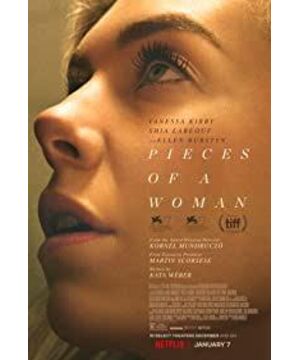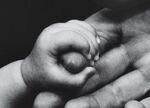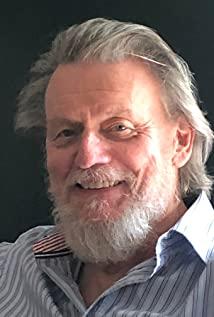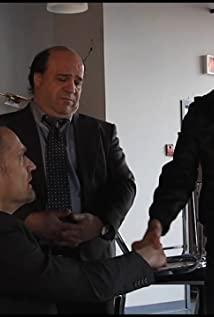American Jewish literature researcher Alan Mintz (1947-2017) mentioned in his "Pop Culture and the Shaping of Holocaust Memory in America " that the Holocaust It has become the core of American culture, although it took place in Europe across the Atlantic Ocean and has little to do with most Americans. And making this historical event not closely related to the United States the core content of American culture is not only related to the unremitting efforts of American Jews in media and education, but also benefited from a series of popular cultural products about the Holocaust, such as 1978. The TV series "The Holocaust" released on NBC television in the United States in 1993, "Schindler's List" directed by Spielberg in 1993, and "The Pianist" directed by Roman Polanski in 2002, etc. As the popular culture about the Holocaust promoted its spread, more popular cultural products about this historical event were produced. At the same time, the Holocaust was also implanted in some movies that had nothing to do with it on the surface, such as A movie recently released on Netflix-"Fragments of Women".
" Pieces of a Woman " ( Pieces of a Woman ) is a feature film released on the streaming platform Netflix on January 7, 2021. Directed by Kenel Mudluzzo, the film tells how a mother who lost her daughter-also a woman-struggles with this sad and gloomy life Mother and reconciled with herself. The heroine Martha (Vanessa Kirby) has a wealthy family since she was a child, but her mother is strong and always hopes that she can control her daughter's life. Out of rebellion against her mother, the adult Martha went against her mother in all aspects: she found the bridge worker Sean (played by Shia LaBeouf), whom her mother never looked down upon, as her husband. He listened to his mother's advice and insisted on producing at home-the movie started with an extremely realistic depiction of Masha's childbirth at home. As a result, Martha's previously scheduled obstetrician failed to come to Martha's home to deliver the baby due to another woman's dystocia, and she was replaced by a midwife whom Martha was not familiar with. With the help of this strange midwife, Martha gave birth to a daughter despite the pain. However, the daughter had difficulty breathing and turned purple a few minutes after the birth, and then passed away. The midwife was arrested by the police and faced charges, while Martha was unable to extricate herself from the pain of losing her daughter. She has been evading this fact, but the reality always reminds her, intentionally or unintentionally, that her daughter is dead and that she needs to deal with everything. In the process, Martha hopes to send her daughter's body to scientific research institutions for research, while her mother asks her to bury her. At the same time, her mother hopes Martha can testify to the midwife's mistakes. Masha wanted to escape but couldn’t escape. After her husband left (who was forced away by her mother), she could only appear in court, but when she accidentally saw a photo of her daughter who was just born and the family happily hugging her little body , She was suddenly relieved, in the court loudly and clearly stated that the midwife was not wrong, and then she also reconciled with her mother-after the mother showed obvious symptoms of Alzheimer's disease.
This is the story of a woman and her suffering, her enemies, her mother, and her own reconciliation. Although Martha finally reconciled with herself and the past, the atmosphere of the whole movie is gloomy and gloomy, full of despair and depression of Martha as a mother of a dead daughter and a daughter deeply influenced by her mother. The most heartbreaking thing is that she clearly chose to give birth at home as a resistance to her mother who wants to control her all the time, but her mother casually said to her after the tragedy: "If you listened to me, now you are Hug your daughter." What a blow and mockery is this. One sentence has created the image of a strong mother who has a strong desire for control and is annoying. Therefore, Martha’s behavioral logic can be explained-she just wants Desperate to rebel against the mother, even if he kills himself and his children.
However, the film's excavation of the psychological motivation behind the mother and daughter's behavior does not stop there, but through the mother's tough attitude towards the lawsuit against the midwife, it shows the reason for the mother's strength-she is a survivor of the Holocaust. At a party at her mother's house, her mother invited her cousin of the gold medal lawyer for Martha's case and told Martha, who wanted to escape and end everything as soon as possible, must be tough and sued the midwife who brought her misfortune. And when her mother told Martha why she had to be so tough, she shared her own experience-during World War II, the German Nazis purged the Jewish people in the occupied territories and launched what became known as the "holocaust." Martha’s mother’s father was sent to a concentration camp, while Martha’s pregnant grandmother ran to a ruined house in the wilderness and gave birth to Martha’s mother. In order to survive Martha’s mother and herself, Grandma Martha had to feed Martha’s mother only a little milk every day. This was because of the limited food and she could not provide more milk for Martha’s mother. Because she had to make sure that Martha's mother did not have the energy to cry in case the Germans found them. After the war, Grandma Martha took the dying Martha mother to the doctor and asked the doctor to save her daughter. The doctor said that the child was too poorly nourished and it was already hopeless, so give up. But under the begging of Grandma Martha, the doctor decided to give it a try. He took the baby girl's feet and said, if she can lift her head, it means she has the will to survive, and at this moment, Martha's mother who doesn't understand anything raised her head.
This passage from Masha’s mother not only explains why she is so strong—the reason why she knew of her tragic experience must be because Grandma Masha told her since she was a child that people can only survive by being tough. The film is connected with the living conditions of Holocaust survivors and their descendants. And this connection, on the one hand, can not only reasonably explain the two plots in the movie that seem to have nothing to do with the theme-why is the bridge built by Martha's husband so important in the movie? Why did Martha's mother end up with Alzheimer's disease? ——On the other hand, it also expands the depth of the film in the historical and psychological vertical.
Western academic circles often refer to people like Mother Xiang Masha who have experienced massacres in infants and childhood as 1.5 generations. Although they have experienced massacres, they are too young to remember or cannot fully understand what happened. what's up. Despite this, the tragic massacre will still bring psychological and spiritual trauma to them. This trauma not only stems from the memory of infants and young children who have entered the subconscious level, but also from the caregivers who have experienced the massacre. The impact. Obviously, in the growth process of Martha’s mother, Martha’s grandmother played a vital role. She has experienced the most painful wars and disasters in human history, and her husband was taken away (probably died in a concentration camp later). Inside), and also experienced the life and death of her daughter. And the trauma that Grandma Martha suffered in the massacre was passed on to her daughter by telling her daughter over and over again about her experience of raising her head in desperate situation, so that the daughter who had been subconsciously hurt again inadvertently accepted the trauma from her mother. After that, Martha's mother used extreme control and command of Martha's life, and passed the trauma from the massacre to Martha again-until the death of Martha's daughter.
The trauma in the deep depths of human history is passed on from generation to generation through telling and nurturing, controlling and resisting, as if generation after generation of human beings have used time to build a bridge to pass the pain-this is why, Martha's husband Xiao Enjian There was no reason for the bridge to be repaired at the end of the movie. Although at the beginning of the movie, Sean, who was looking forward to the birth of his daughter, said that he wanted his daughter with a new life to be the first person to cross the bridge, but he did not realize that his daughter might also be the inheritance of history. A new generation of heirs to the Pain family. The bridge he built not only connects the two banks of the river, but also a symbol of intergenerational communication-happiness can be passed on, pain can also be passed on.
However, after the death of her daughter, the work of building this bridge of pain came to an abrupt end. Sean and Martha broke up and went back to their hometown, while Martha was in a contest with fate and with her mother (in fact, in the contest with her mother, except for emotional factors, most of it was also a contest with fate). Staying with yourself and not letting it pass on—whether it's to the innocent or guilty midwife or your own daughter—is the only way to get liberation and let go of yourself. The death of her daughter made her see this clearly. The movie showed Martha eating an apple more than once, and she didn't tell until the end of the movie that she smelled an apple on her daughter when she was just born. There may be no actual evidence, but the connection between the death of Martha’s daughter and the apple reminds me of the fruit of wisdom eaten by Eve in "Bible Genesis"-after eating the fruit of wisdom, Eve has wisdom. After the death of her daughter, all kinds of Martha who rebelled against her mother and pursued herself (in fact, resistance is not a kind of reverse control) realized while gnawing on the apple that perhaps this is the time to block the transmission of pain.
It was at this time that his mother suffered from Alzheimer's disease. Although there are only a few shots of this in the movie, the audience understands that the mother is forgetting, forgetting the lost keys, the cakes, and the lives of millions of people in the past. Pain in ambition. What her mother forgot was the ease of death, but what Martha forgives was the difficulty of life. Between death and life, the woman crushed by history stretched out her hand to the depths of history and found the fragments she had lost. It's not just Martha, and I don't know it is Martha's mother, but thousands of women like them who are living in pain.
"Fragments of Women" not only tells about the helplessness of contemporary women, but also the attitude that women should adopt when facing the pain of intergenerational transmission of historical issues. It seems to be talking about fragments, in fact, when the word "fragments" is mentioned, it has already yearned for a complete rebirth. And the historical event of the Holocaust, in such an almost unrelated story, was once again shown to American audiences, reminding, warning, and flowing in fiction like the river in the movie.
View more about Pieces of a Woman reviews











